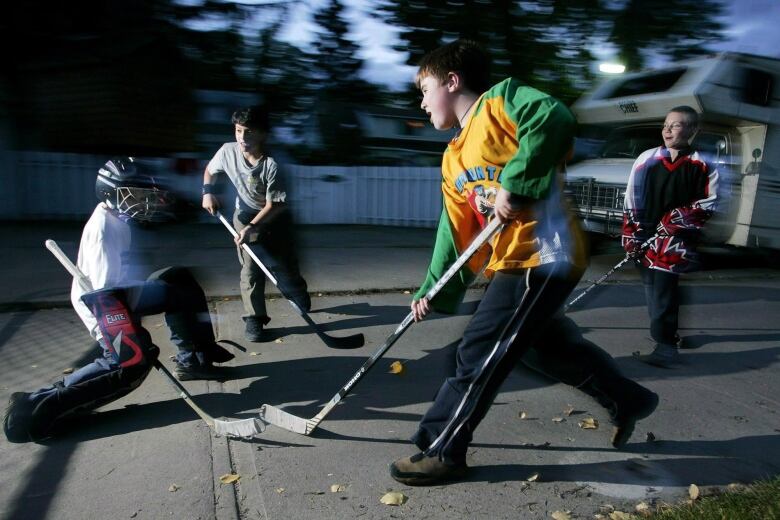CHEO study finds few young Canadians met healthy activity guidelines early in pandemic
Only 3.8 per cent of Canadian youth met 24-hour movement recommendations, says new study
Barely any young Canadians met healthy activity recommendations during the first six months of the pandemic, which included the spring and summer of 2020, according to a recent study by the research institute at CHEO, eastern Ontario's children's hospital in Ottawa.
The research team — using data from an online survey of more than 1,100 parents of school-aged children in Canada — wanted to see how the pandemic affected healthy activities, including physical activity, screen time and sleep.
Only 3.8 per cent of youth met the recommendations for all three activities. Young Canadians are recommended to be physically active for one hour a day and use screens recreationally for fewer than two hours a day. They're also suggested to get between eight to 11 hours of sleep each night depending on their age.
Dr. Mark Tremblay, a senior scientist with the CHEO Research Institute and a contributor to the study, told CBC Radio's All In A Day on Tuesday that he reacted with disappointment and fear when he saw the results.
"It's certainly cause for concern," he said.

Only about 16 per cent of the children whose parents were surveyed met the requirement of 60 minutes of physical activity per day.
Tremblay said poor physical activity can become habitual and once new behaviour patterns are established, "they're very difficult to revise."
Meanwhile, about three out of four children surpassed two hours of daily recreational screen time in the early days of the pandemic.
In the surveys, Tremblay said parents were asked about their perceived ability to set limits on screen time for their kids. Parents who reported difficulties in setting limits had a much lower likelihood of their kids meeting healthy movement guidelines.
Tremblay said the survey shows families should work on building systems to cut down on screen time. Eliminating screens altogether isn't necessary, but managing recreational screen time is important, he said.

Tremblay did acknowledge stressors that came with the pandemic, including working from home and online schooling. He said these major changes can tempt people to "default to what is easiest. And certainly, sedentary screen behaviour is easy."
When it came to sleep, about two-thirds of kids met the required number of hours. Tremblay said children were getting roughly the same amount of sleep as they were pre-pandemic. Some did go to bed later and woke up later — a sign of the flexibility kids had when they were in online school.
A return to normal, for better or worse
Tremblay said advocates of healthier living hoped some of the healthier pandemic lifestyle changes would stay for good. He referenced families who bought bicycles or cross-country skis during a push for COVID-safe physical activities.
Tremblay now has his doubts, and he highlighted how the pandemic encouraged many schools to hold classes outside, where it was more difficult for COVID-19 to spread.
"We've gone right back to locking kids in desks and putting them in front of screens. We didn't learn too much from the possibilities out there," he said.
"It would have been nice if, on a population level, we would have done a full recalibration [of our behaviours]."
With files from CBC Radio's All In A Day

